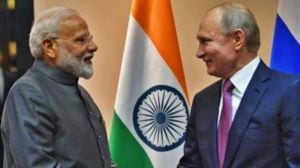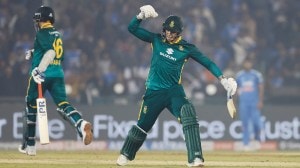In a male bastion, Asgari Bai held her own tune
The First and Only Lady of Dhrupad Asgari Bai is no more. She passed away on Wedesday, after suffering a year of severe illness. But she left behind a wealth of memories, as two maestros recall

Just last year, and not for the first time, she had announced she’d sell them all – the Padmashri, Tansen and Shikhar Samman, Sangeet Natak Akademi – because they were worth no more to her than just dusty memorabilia from happier times. She had received them when her voice had been strong, and her heart had songs. But now, in penury for years, her children squabbling over her meagre pension, forgotten and forlorn, Asgari Bai, whenever heard, had been voicing only complaints. Against her family, and the government.
Dhrupad had no woman singer till Asgari Bai picked up the form in the 1980s-adding it to her already wide repertoire of folk and semi classical music. She surprised her contemporaries in quite many ways. Sidelining khayal (considered the offspring of Dhrupad), Asgari managed a curious combination of thumri, chaiti and kajri (semi classical folk forms) along with Dhrupad compositions at concerts. She knew she was an intruder in Dhrupad’s male bastion. But she never let it take away from her confidence.
She was 88 when she breathed her last. But the last maestros of the dying discipline of Dhrupad have young and vibrant memories of her.
Pandit Ramakant Gundecha
I heard Asgari Bai first in a festival at Bhopal in 1981. My brother, Umakant Gundecha, and I were novices at that time. Asgariji’s rendition of Led, the folk-form from Bundelkhand, was exquisite. She was so influenced by Begum Akhtar’s style in chaitis and ghazals. By the mid 1980s, as she grew older, started avoiding traveling. Which, in turn, meant a decline in concerts and a fan following that diverted its interest to other artistes in Madhya Pradesh. We used to visit her quite often at Tikamgarh (she had been a courtesan here in her younger days). Her versatility is a rarity amongst musicians.
Ustad Wasifuddin Dagar
My gurus, uncle Ustad N Zahiruddin Dagar and father Ustad N Faiyazuddin Dagar (the famous Dagar brothers) really respected Asgari Bai for her command on tal (rhythm). I first heard her in 1982, she had such a great store of Dhrupad and Dhamar compositions and would render them in great style. Though her approach to alaap was quite different from us, Dagars. And her bol baant (a special rendition of the lyrics in a tal based frame) was really impressive. We invited her again in 1986 and 1989 for the Parampara concert series in Delhi and she impressed me with her wide approach to music. Owing to the strong influence of her guru Ustad Zahoor Khan (of Gohad) Asgari Bai’s fundamentals on Dhrupad’s grammar were really strong. Very few contemporary singers, or hardly any, can handle such a great variety of forms in their repertoire.
— As told to Sumati Mehrishi Sharma
- 01
- 02
- 03
- 04
- 05































